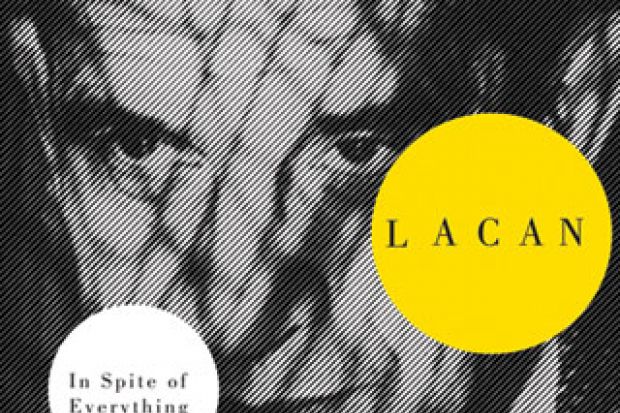Part-way through Élisabeth Roudinesco’s newest book on the French psychoanalyst Jacques Lacan, the author cites some telling film footage in which the man himself is recorded in full flow, performing to a captivated audience at the Université Catholique de Louvain in 1972: imperious, idiosyncratic and at the height of his fame.
The footage is readily available on YouTube and a perennial favourite with undergraduates, who, if flummoxed by French theory, almost always warm to Lacan’s particular brand of grouchy Gallic grandeur. Bouffant-haired, clutching a fat cigar and wearing a curiously pussy-bowed shirt (visibly garish even in black and white), his hands strain and curl with the intensity of his efforts at articulation: “Language”, he says, “never gives, never allows us to formulate…” Rather unfortunately for him, a shaggy-haired upstart student suffers no such compunction, and midway through the lecture, leaps up to declare a radical intervention, pouring milk over the lectern and shoving a faintly startled, and mostly exasperated, Lacan aside. It’s the kind of interruption that would bewilder the best of us, but which was probably par for the (semiotic) course for Lacan, whose own conduct in lecture halls and consulting rooms was hardly conventional.
Roudinesco, though, understands a Lacan for whom this insight about language is central: the notion of a speech that constantly discloses subjectivity, and a subject overpoweringly determined by the primacy of a symbolic register. The milk-pouring student rails at this and is thwarted by it nonetheless: Lacan watches knowingly. This is a good example of Roudinesco’s tactic in this book, which is to join up the events of Lacan’s life with the substance of his thought. Disappointingly, however, her prose reads unevenly, the book a bumpy juxtaposition of interest-piquing biography and often leaden intellectual exposition.
But Roudinesco is knowledgeable as well as earnest and reverential, her immersion in Lacanian thought is synthesising and sure, and there is certainly something admirable in the experiment that the book seems to offer. When she suggests, rather grandly, that the book be understood “as the exposition of a secret part of the life and work of Lacan, a wandering off the beaten track: a reverse or dark side, emerging to illuminate the record, as in an encrypted painting where the shadowy figures, formerly hidden, return to the light”, a reader might be seduced by the promise of “a Lacan of the margins”. Perhaps inevitably, the book struggles to fulfil such ambition, lacking a certain grace and fluency in its structure as well as in its translation.
Interestingly, Roudinesco’s book follows in the wake of a recent spate of philosophical biographies, the best of which is Benoît Peeters’ lengthy and considerate Derrida (2013). Although Roudinesco’s effort never quite achieves the sheer companionability of Peeters’, it is a sturdy book with fair points of interest and illumination. She is deft on Lacan’s relationship with Sylvia Bataille (wife of Georges) and the child born of their affair, whom she notes was unable to take Lacan’s name until 1964. This, she suggests, “was the fertile ground on which he developed the theory of the Name-of-the-Father”. There’s a jaw-droppingly missed encounter with Simone de Beauvoir, who apparently called Lacan for advice on The Second Sex – a delicious story generously shared by Roudinesco.
On the concept of jouissance, which she evocatively defines as “a quest for a lost thing…unknowable for man and unspeakable for woman…an orgasm that is limitless, voiceless, speechless, possession without a master”, she gently reminds feminist critical theory of its Lacanian debt. Roudinesco’s contention in this book is that if “the twentieth century was Freudian; the twenty-first is already Lacanian”. Certainly, a psychoanalysis without him would be lacking.
Lacan: In Spite of Everything
By Élisabeth Roudinesco
Translated by Gregory Elliott
Verso, 224pp, £45.00 and £14.99
ISBN 9781781681633, 1626 and 82142 (e-book)
Published 31 March 2014
Register to continue
Why register?
- Registration is free and only takes a moment
- Once registered, you can read 3 articles a month
- Sign up for our newsletter
Subscribe
Or subscribe for unlimited access to:
- Unlimited access to news, views, insights & reviews
- Digital editions
- Digital access to THE’s university and college rankings analysis
Already registered or a current subscriber? Login





